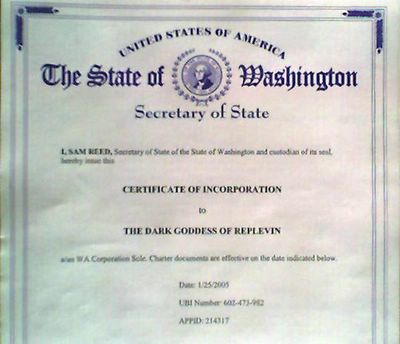Back on September 27, 2002, Cardinal Law mortgaged his house to pay off the Archdiocese's line of credit.
Why am I in a lather about this? Well, it smacks of bankruptcy planning to me. A person can exempt from distribution to creditors in a bankruptcy generally only a limited amout of home equity (except in bankruptcy havens like Texas and Florida, where one has an unlimited exemption). So usually, if you have a valuable house, you have to give it up to your creditors to pay your debts. But if you take out a mortgage on the house before your bankruptcy to extract and use up the equity, say by paying current operating expenses for an archdiocese (there's a preference issue if you retire old debts with the money, or make payments within 90 days of the bankruptcy), you get to keep your mortgaged house, 'cause there's no equity. And as debtor-in-possession you get to make your big mortgage payments.
Are you thinking, who lends money to institutions on the brink of bankruptcy? Well, if you're a Catholic archdiocese, the answer to that question is the Knights of Columbus. The Knights' website says that "For more than 100 years the Knights of Columbus has provided financing for church development projects. The loans are available to dioceses, parishes, catholic schools and hospitals or any other Catholic facility. Once a loan is approved it can be used to replace a bank construction loan. These loans not only offer attractive rates, but also feature maturities up to 20 years. There are no points and no hidden charges. You will need the following prior to the application process: approval and guarantee of the loan by your diocese or religious order and sufficient real estate so that the loan-to-value amount does not exceed 75%. The Knights will also consider unsecured loans."
Of course, all this assumes that Bernard Cardinal Law files for personal bankruptcy, and not the Archdiocese of Boston, but it is not clear to me yet--probably because I (1) haven't researched it; (2) am not hip to canon law--to what extent an archdiocese owns property separately from the cardinal, archibishop or other sentient mammal in leadership, and the effect of the corporation sole. My readership--at last count, six--is urged to check back as I research this further. Constance Sweeney--peace be unto her!!--appears to think that canon law is irrelevant when it comes to sheltering the AD.
What's the link to technology here? Well, back in the day when the Paula Jones complaint was passed around in xerox copy, which is how I read it months later, the information from which the reasonably informed can draw inferences is available much faster. And the truth--but what is truth?--must out all the faster.
So my hunch is that the thought of bankruptcy is NOT a new one for Cardinal Law...lessee...ninety days from 9/27/2002 is... 12/26/2002. Merry Christmas to all, and to all a good night.

No comments:
Post a Comment